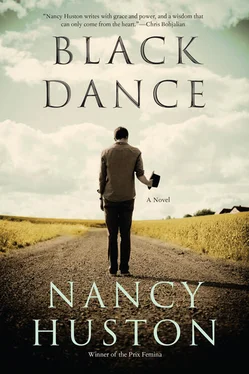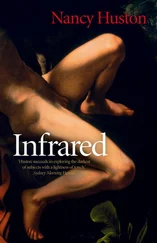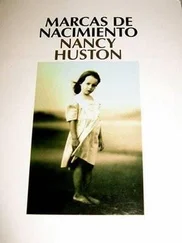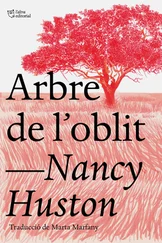In May 1923, sickened by the inanity of the fighting, Éamon de Valera surrendered and the civil war ground to a halt. It had lasted two years and caused several thousand deaths. . That fall, Willie Yeats was awarded the Nobel Prize in Literature.
I could not go on.
END OF PANORAMIC LANDSCAPE SHOT.
CLOSE-UP ON NEIL in December 1923, thirty-one and miserable, on his knees at Marie-Jeanne’s bedside as she nurses Marie-Thérèse.
“I can’t go on like this, Marie-Jeanne. I’m sorry. . I adore you, but I have to make some changes. . If I can’t write, I’ll go crazy. Listen. . I’m going to look for employment as a journalist in Montreal. I’m sure I’ll find something. . I promise to come back. You can trust me. .”
“Listen, Neil! I have something to tell you! It’s a secret, you’re not supposed to know yet. My father wanted it to be a surprise, for your Christmas present, but as of next spring he’s going to add a floor to the house, just for you. Isn’t that fantastic, Neil? He’s going to build you an office, and you’ll be able to write!”
Neil’s head sinks until his brow touches Marie-Jeanne’s smooth-skinned hand. Night falls over the endless winter forest of Mauricie.
FADE TO BLACK.
• • • • •
Awinita, October 1951. .
THIS WILL BE the roughest of the Awinita sections, Milo, darling, as your mother starts shooting up again and you grow inside her womb, your tiny heart guzzling heroin and pulsing it through your bloodstream into your just-forming brain, numbing all your nascent senses. A section with no dialogue, just fragmented images melting one into the next as your mother fades in and out of consciousness. . sits at the bar and drinks phony drinks with her johns and real ones with Declan. . smiles at the johns and frowns at Declan. . takes the johns’ money and gives it to Declan. . climbs up and down the stairs between bar and bedroom, bedroom and bar. . takes off her boots, stockings, blouse, bra and panties and puts them on again, all her clothes getting tighter and more uncomfortable on her body as you grow but of course she can’t afford a pregnancy wardrobe. . closing her eyes so as not to see the faceless needy men pushing into her, asking her to love and care about them, until they come and leave.
This time, if you agree, we could go all the way inside her mind and simply knit together a series of fantasies and nightmares, using a sound track now familiar to us — that endless series of belt-buckle and zipper noises, panting, swearwords and racist insults, moans and groans. Yes, I know, Milo — you’re worried that not only the MPAA but the audience itself might tire of hearing these sounds, but if they think about it they’ll realize that what seems annoyingly repetitious to us after five minutes must be soul-death to those who, for whatever reason or combination of reasons, devote months or years of their lives to helping strangers ejaculate. Okay, these sounds could be drowned out every now and then by the beating of native drums, how’s that? (In October 1951, the laws that for over half a century had forbidden African Brazilians from doing capoeira, and Indian Canadians from holding potlatches, powwows, and sun dances, had just been abolished. .)
A train rushes toward a tunnel at top speed — but it turns out that the black arch is only painted onto the concrete, and the train smashes into it headlong. Somehow all the passengers are squish-bounced out of the windows. They land gaily on their feet and run around laughing and shaking each other’s hands, congratulating each other on their good fortune.
A city plunged in darkness. No streetlamps or neon signs. Even the cars have no headlights, but their blindness neither increases their caution nor decreases their speed. They keep smashing into each other — this time the passengers get killed, and it is their ghosts who nimbly leap away from the wreckage. They are small, amorphous gray creatures who dart about, gesticulating helplessly, eyes widened in shock. They weep silently on each other’s shoulders and console one another.
A narrow, glossy black snake’s head emerges from a hole in the ground. The snake twists its neck around to make sure that no one is watching, then hoists the rest of its body out of the hole. It is shockingly fat and clumsy, like an obese woman dressed in a black leotard, with a couple of extra limbs and bulges. The snake clumps around in a meaningless, ugly shuffle-dance, then rolls disgustingly on the ground.
A baseball goes soaring through the air in slow motion. The stitching comes apart while the ball is still in flight, and hundreds of tiny white parachutes drop gracefully from its insides.
A man shouts in anger. Suddenly his voice undergoes all its metamorphoses in reverse, and within seconds he is a howling baby.
Bodies plummet, human bodies hurtle downward through the air with groans of fear that sound like droning airplanes. A white flower opens with searing grace and purity.
The flame of a candle — now steady, now flickering, but always burning — reflects the sundry images with which it comes into contact. There is a vague procession of people, animals, buildings. .
A green shoot comes up from the dark earth. It sprouts two tiny bright leaves, then stops growing.
A milk bottle cap shoots off; the milk spews upward and falls in a thick white curve of milk.
That thick white curve of milk showers gently and felicitously down upon you both, Awinita and Milo, covering your bodies in a fountain of warmth, the mellow marrow-ecstasy of heroin. Eyes close gently, breathing slows, lips relax, hands open — oh, abandonment, oh, utter abandonment — woman and womb, skin and membrane, the mother a child to her child, the child a mother to its mother, adult and infant curled up around and inside of each other, outside of Time.
• • • • •
Deception, provocation. Pretending to do one thing (a movement, an attack) and in fact doing another to surprise one’s adversary.
Milo, 1975–90
A NIGHT SCENE, lit by torches, on Terreiro de Jesus in Salvador de Bahia’s upper city — a large and beautiful square surrounded by old churches and cafés. Young black men in white pants have formed a street roda and passersby are being drawn into it. Radiating from the central berimbau, energy circulates from one body, voice and soul to the other; by turn, the capoeiristas sing and kick and spin and wheel and cartwheel, beat drums and shake tambourines— ta, ta-da DA, ta, ta-da DA, ta, ta-da DA —smiling always, even when they miss a beat and fall or accidentally strike an adversary. The rhythm is hypnotic and insistent, monotonous and precise. It’s not by virtue of making an effort that they play together; rather they are part of a single body, the pulsating joyful body of the fight-dance. Raising your foot in a kick-spin, you all but graze your adversary’s face, the beauty is to miss him but just barely, if he dances well he’ll feel the blow coming and be ready to second-guess you and avoid it, knock you off balance and gracefully threaten you in turn, as the two of you watch and duck, swing and smile and wheel and dive and lollop, the beat carries you forward, then your turn is over and, moving to watch the next pair bow to salute each other in front of the central berimbau, you encourage them with our singing, drumming, clapping and your smiles. Ta, ta-da DA, ta, ta-da DA, ta, ta-da DA . . There’s no winning or losing in this game, only playing, endless playing, you want your adversary to be strong not weak, smart not dumb, you’re delighted to trick him and delighted to be tricked by him, boy learns from girl, white learns from black, old learns from young, the teaching is the doing is the beauty is the grace is the humor, endlessly you go on learning, smiling, moving, feinting, never missing a beat. Gingare , the dance of life: the controlled, prolonged, sustained, ineffable excitement of capoeira is like an endless climax.
Читать дальше












